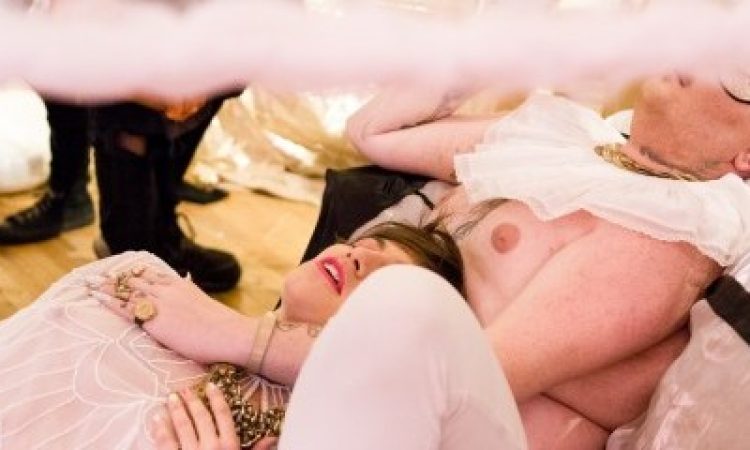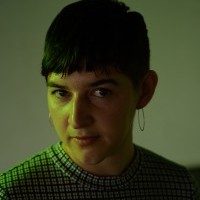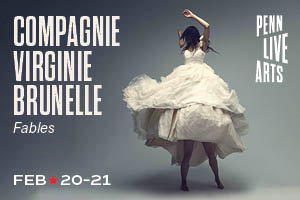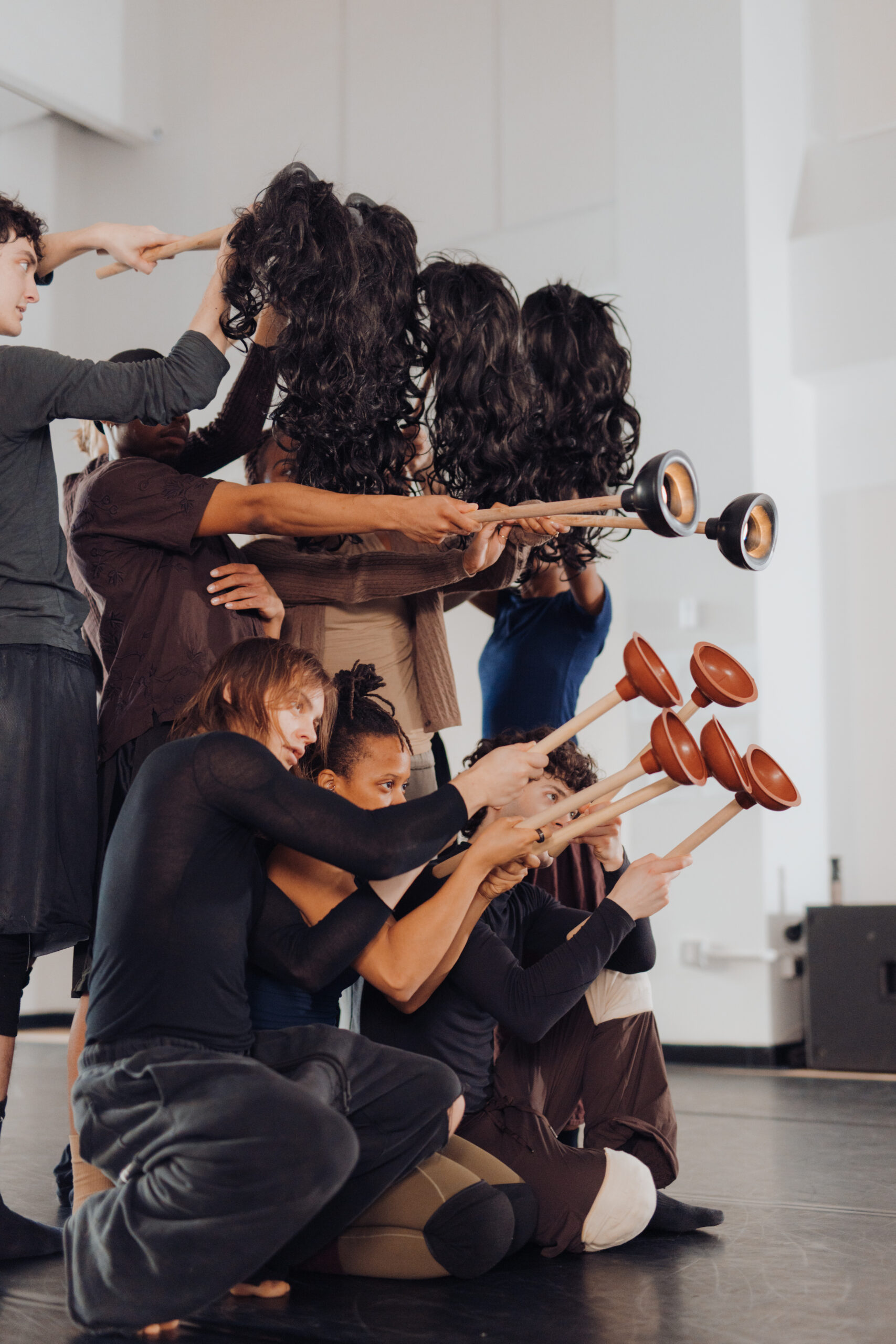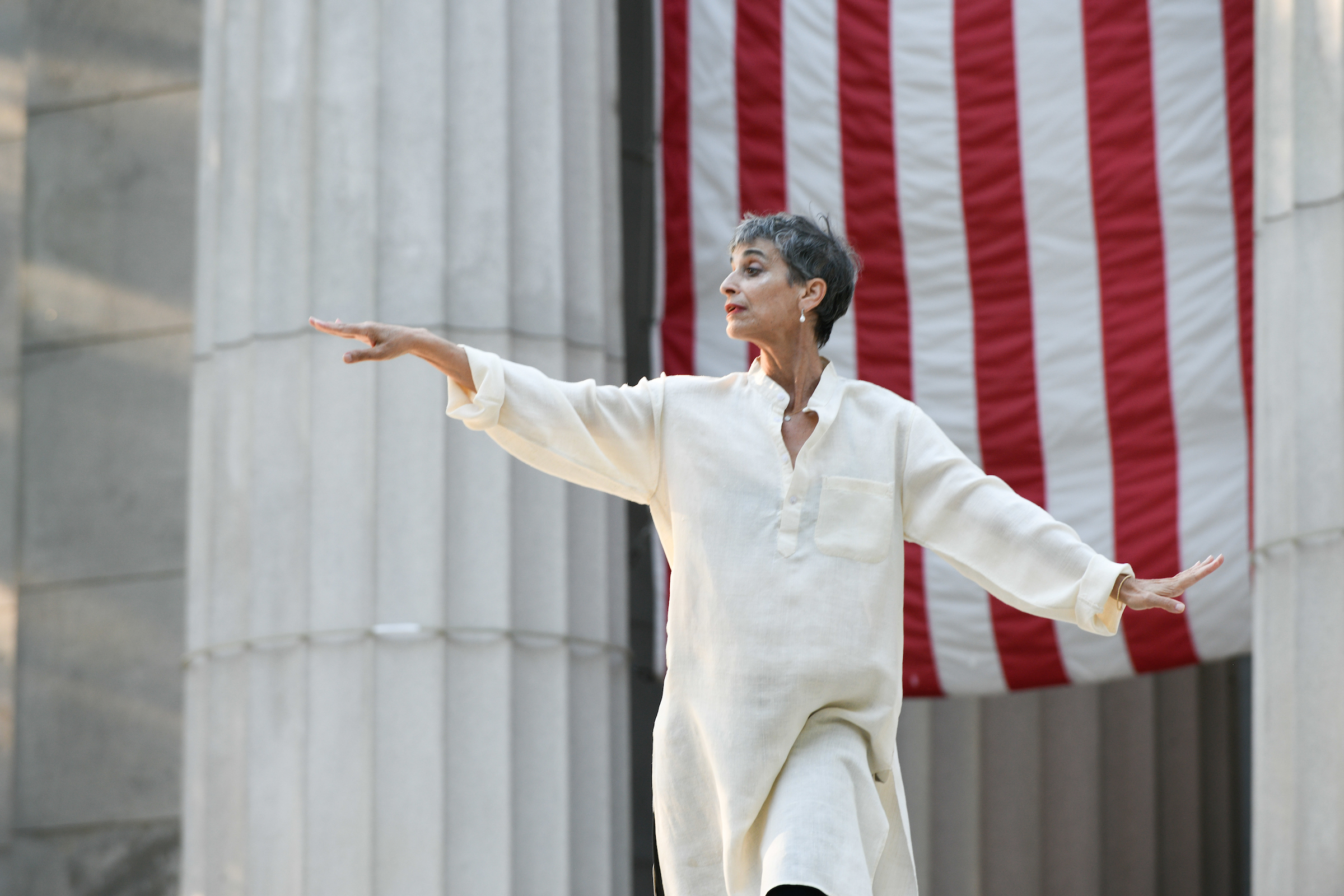Bitten, ass-slapped, manhandled into lifts; many Contact Improvisation (CI) dancers can relate to my experiences of boundary violations at contact jams. The CI world has begun a conversation about consent with some drafting jam guidelines*, others incorporating consent in college courses and other initiatives. This March, I participated in Eroca Nicols’ Aggressive Snuggling workshop at The Whole Shebang. The workshop combined elements of CI and Brazilian jiu-jitsu, a form which relies on clear consent signals. The snuggling is actually aggressive: like pythons, we squeezed, held down, and strangled each other, always trying to close the space between bodies. The work was physically demanding, emotionally intense, and very sweaty. I joined Eroca afterwards to discuss the workshop, consent, and accessibility.
Miryam Coppersmith: What are the origins of the Aggressive Snuggling workshop?
Eroca Nicols: In 2016, I got this job teaching for the Montreal Regional Jam. I sent them a class description for “Contact for Queers and Ladies.” I was trying to address the ways in which queers, women, and folks of color are excluded from the white-hetero-cis-patriarchy of CI. The whole anarchist hippie freedom thing is really exclusive even though it says it’s inclusive. Cis straight dudes were not welcome in this class. The class was not just centering women and queers, it was onlyfor women and queers because there is no space for that in the Contact world that I’ve encountered.
I got this intense email back from the organizers saying, “Do you realize how aggressive and critical you’re being to CI?” As if CI were something you could be mean to. So, I rewrote the description as “Aggressive Snuggling.” They put it on the website but removed the paragraph that had all of my direct critiques of CI, all of the reasons I do not invite women, people of color, queers, and trans folks to CI. If I can’t invite my whole community to the place where I train, then I need to change that place either by leaving it or by working to change it from inside. I put the paragraph back in and after the class had a conversation with the woman who originally took it out. She told me that her reservations were around men in the community not being ready for this work. It was definitely eye opening about the ways in which white women can be gatekeepers; but I was impressed that she was willing to admit a wrong and engage in this hard conversation publicly.
MC: You talk in your workshop about the “implicit yes” vs. “implicit no.” What does training an implicit no mean to you?
EN:The implicit no I’m working on is this: you know that you can say no and it will be received with “okay, I stop, and we begin this dialogue again.” There’s no questioning the no. After training in dance, the openness is very real. If we only train openness, if we only train yes, we forget how to say no even just with our bodies. That’s one of the reasons why this is such useful cross-training for dancers: no, you don’t owe a yes to a choreographer, you don’t owe a yes inside of a contact dance.
There’s an absence of agency in a capitalist system because we aren’t in touch with what our body means when we actually say yes. A yes under capitalism means “yes, I’d like to survive.” When there is no possibility for a no that keeps us surviving, there’s no agency. When we start to acknowledge the ways in which we give away our labor without having a moment of embodied agency, it’s really fucked up! It requires healing, and I’m trying to make a space for that. But also, when you know no can be said and received, you can do some badass dancing and I’m excited about that.
MC: One of the delights of taking your workshop was your names for movements. I’m thinking about “pussy pop rainbow,” where you throw someone off of you by pelvic thrusting upward and arcing them down to the ground. What is your process for naming or renaming movements?
EN: When I started teaching Aggressive Snuggling, it was to friends who are queer and trans. There is something about the ability to play with language and femme-adorn jiu-jitsu. It’s scary to start jiu-jitsu, especially if you’re a survivor of sexual assault, so how can I make space for myself by adding some humor? I’m actually popping my pussy into the air and making the shape of a rainbow. It’s a lot more descriptive than oompah, which is what they call it—
MC: Oompah is pretty descriptive.
EN: I think there’s a lot of control in language, in the way that people talk and teach about the body. Hopefully my being playful with it leaves room for other people to be playful with it.
MC: What was your path to jiu-jitsu? How has that training affected you?
EN: I met my friendsei—undoing the word maestre (master) to reflect the mutuality of our learning together—because I was in Brazil doing research on death rituals and he was like, “Jiu-jitsu is a practice of meeting your death every day.” You know that everyone on the mat can, if they have more skills than you, kill you. That is basically like walking around with a womb and/or being a femme in the world. We know that, if we don’t have the skills, we can be dominated by people who are stronger than us.
After a year of studying, my friendsei and I were rolling. He said, “You’re getting really good. If someone doesn’t know jiu-jitsu, you would destroy them. Even the ones who do, you would be a problem for them.” It hit me: I’m not afraid of being raped.
How do we find the things that we fear and then snuggle the shit out of them? It doesn’t mean the fear goes away 100%, but it looks very different from the other side.
MC: Looking at your past work, like Dance in my Backyard, I see this commitment to deeper accessibility, to acknowledging and breaking down oppressive structures. How does that function in your performance work?
EN: When I first started making dances, it was mostly fart jokes, because I hated how everything is so exclusive. I felt like I couldn’t bring my family to performances because they’re not invited. Poor people aren’t welcome at most contemporary dance shows. In the beginning, my work was deeply entertaining and funny and then people got a feelings/meaning sucker-punch, but there’s a deep element of transformational ritual that has always been in my work. How do we take everyone in this room together and go from one place to another through an experience in time and space with our bodies? Transformation is for everybody. How do we address this actual space? What’s already here? I don’t need to make extra things. There are humans that are breathing and a space that is on stolen land and a building that got built here . . . How can we include that and not pretend we’re in a neutral space, because there’s no such thing?
Eroca will be teaching Queer Kinship Ritual at Agora Collective in Berlin this June.
Aggressive Snuggling, Eroca Nicols, The Whole Shebang, March 6-11, thewholeshebangphilly.com/take-classes/aggressive-snuggling-with-eroca-nicols.
* Compendium of Jam Guidelines compiled by Benjamin Pierce at https://contactimprovconsentculture.com/
